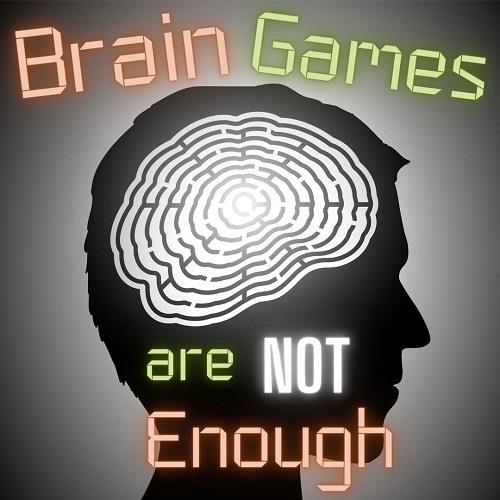We are always unrealistically enthusiastic whenever something comes along promising a big boost to health that allows us to sit still or take a pill. And the reality rarely lives up to the promise. And yet, we always pine away for the easy path.
Brain games can be a fun, enjoyable to challenge many aspects of cognition. However, we cannot expect much from them in terms of brain health.
- They can improve performance on the cognitive tasks that they challenge, but improvements may not transfer to the things we really care about in real life. (Does a computerized memory test also make you better at remembering someone’s name?)
- There is currently little evidence that computerized cognitive training can delay or forestall dementia. (“I call them ‘get smart quick’ schemes,” says Walter Boot, a psychologist at Florida State University.)
- Boot, who co-wrote a 2016 paper that reviewed the evidence on brain training interventions and concluded that there was (1) “extensive evidence” that they improve performance on the trained tasks. There was (2) less evidence that they improve performance on closely related tasks, and (3) little evidence that they enhance performance on distantly related tasks. (4) The researchers also found scant evidence that such training improves everyday cognitive performance.
- It’s probably the lifelong things that you do, such as engaging with the world and being social, that matter.
- Social connection and activities involving interactions with other people seem particularly helpful, as the recent absence of both in the last year+ has made abundantly and unequivocally clear.
Ok, What Should We Do?
- It’s simple: Do “moving brain games,” (aka: physical activity with cognitive challenge)
- Yes, We need more research…but we also
don’t.
- What are you going to do today for brain health and maintaining or improving cognitive function? Wait (decades) until further research determines definitively, the best way to do that?
- Use current science and common sense to combine physical and cognitive challenges that use the same integrations of physical characteristics (agility, balance, coordination, endurance, strength, power, etc.) with executive functions (memory, attention, problem-solving, spatial awareness, etc.)
- We don’t need new research to look at
history. What got us the big, fancy
brains we have today?
- Bipedalism
- Hunter-Gatherer Lifestyle
- Agriculture
- We can reasonably assume that if we mix physical and cognitive challenges, thus mimicking the same conditions which created the brains we have today, we will create a significant positive brain health stimulus greater than pursuing physical or cognitive challenges separately.
Ok, But You Haven’t Told Us – Specifically – What We Should Do
- During physical activity and exercise, incorporate the following:
- Physical challenges that heighten the brain’s engagement and focus: reactivity, coordination, partner interactivity, friendly competition (with)
- Cognitive challenges to memory, processing speed, attention.
Can You Show Us Some Examples?
- Of course! In a webinar on 22 June. Click here for details and to register.

